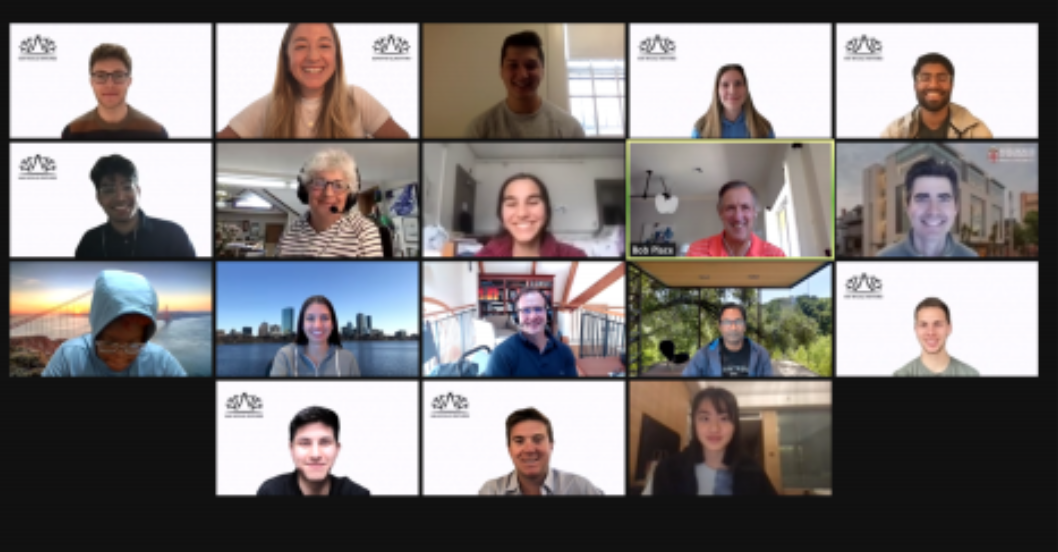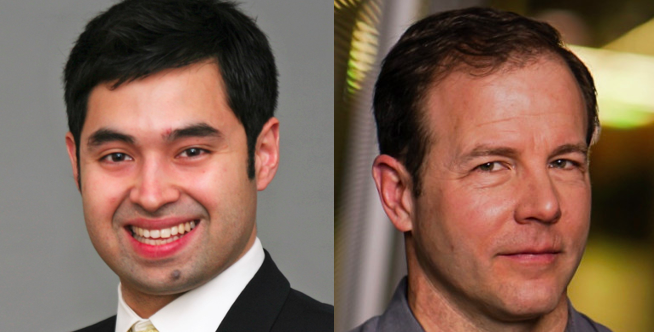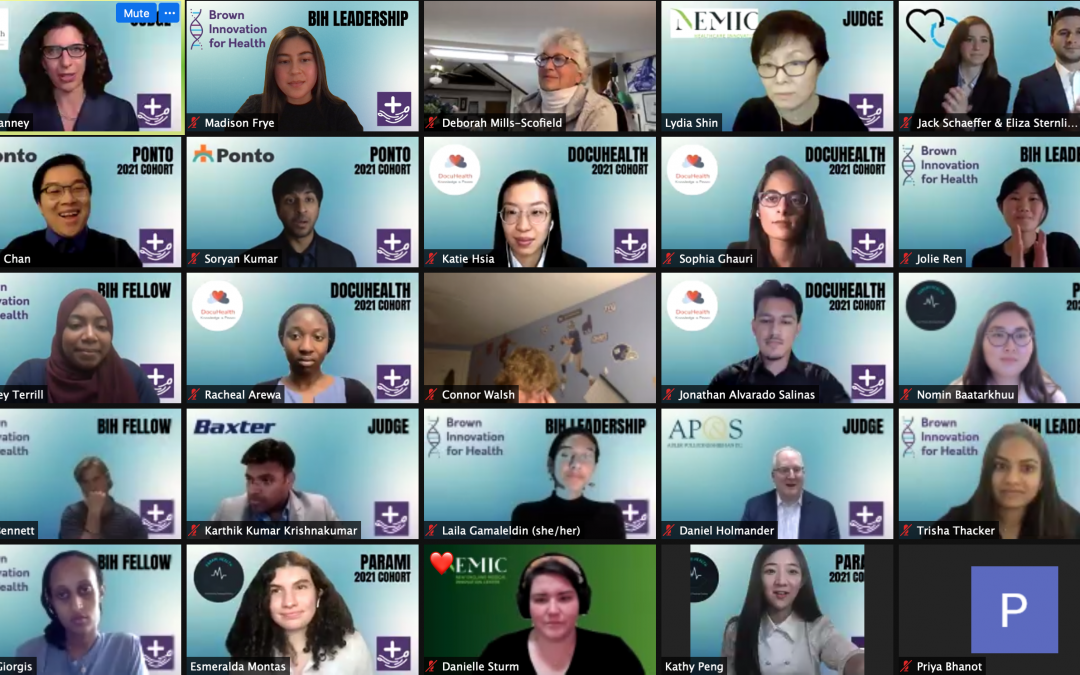
by Katie Calabro | Apr 27, 2021 | News from Nelson
The last two and a half years have been an exciting, challenging, and extremely rewarding journey for the Van Wickle Ventures team. Van Wickle Ventures is a student-run venture capital fund under the auspices of the Nelson Center that invests in companies across all different industries and stages, with one common thread: at least one member of the founding team has to have some Brown or RISD affiliation. As soon as we started sourcing companies, we realized that there is no shortage of opportunities within this ecosystem. Not only is there ample opportunity, but Brown-founded companies actually have the highest average exit valuation of any American university.¹ Today, our team consists of eleven associates and six associates in training. The training we provide at VWV is the cornerstone of our philosophy: educating students on how to become effective venture capitalists. Along with this educational mentality, the evergreen structure of our fund, in which we reinvest returns back into the fund, ensures that we can support entrepreneurship on College Hill and beyond.
To date, we have invested in four companies: 305 Fitness, founded by Sadie Kurzban ‘12; Projector, founded by Trevor O’Brien ‘10; Minded, founded by David Ronick ‘89; and Intus Care, founded by Robbie Felton ‘21, Evan Jackson ‘21, Sam Prado ‘21, and Alex Rothberg ‘21. Each of these investments has awarded us the opportunity to dig into different industries, dissect financials, and develop our own theses, opinions, and conviction. Beyond the companies we have invested in, we have diligenced ten more deals and sourced over four hundred deals to date. The best part of VWV is connecting with Brown alums who are building exciting new products and ventures and who we have so much to learn from. On almost every call we have with a founder, the refrain is the same: “I wish VWV had existed when I was a student at Brown.”
Now, looking ahead. Van Wickle Ventures has no intention of stopping or slowing down. With six new associates about to join the team, we anticipate deal flow to continue to be robust and for the opportunities to learn and grow as investors continue to be available to us. In order to do this, we need to raise more capital. Back in 2019, Bob Place ‘75 and Erna Place ‘76 generously donated $150K to fund our first pilot program. Today, with only $50K left in the fund, the Places have again generously offered to invest another $100K of capital into VWV under the condition that we raise another $100K to match that donation through a Fundraising Challenge.* We are so grateful to Bob, all of our past and present Investment Committee members, everyone who serves on our advisory board, and the folks at the Nelson Center who continue to support us. Without all of these people, VWV would not be able to flourish as it has.
We are so honored to be a part of the amazing Brown entrepreneurship community and we cannot wait to see what is in store for us in the future.
All the best,
The Van Wickle Ventures Team
¹https://files.pitchbook.com/pdf/PitchBook_Universities_Report_2016-2017_Edition.pdf
*Learn more about the Van Wickle Ventures Challenge here. To participate, contact Sarah Santos, Director of Development for the Nelson Center, or donate now.

by Tori Gilbert | Apr 21, 2021 | Alumni Stories, Announcements, News from Nelson
Professor Barrett Hazeltine has been mentoring and inspiring Brown University students for decades. In honor of his dedication to student mentoring, and in particular, his mentorship of aspiring entrepreneurs, a group of alumni came together to start the Hazeltine Mentoring in Entrepreneurship Award. We are excited to announce that this year’s recipients are Hamzah Ansari PRIME ‘09 (left) and Troy Henikoff ‘86 (right).
Hamzah Ansari has been a tremendous resource to the Brown and local entrepreneurial community for years and in particular, the Nelson Center since we opened in fall 2016. It is common to find him mentoring student startups in various Nelson Center and Engineering programs, sponsoring independent studies for students focused on entrepreneurship, and often being asked to judge pitch competitions. He consistently raises his hand to mentor students. Hamzah currently teaches the technology commercialization and entrepreneurship course in the PRIME Masters Program, and students in his class consistently comment on his dedication to them and their venture ideas. This was especially true during the last summer when he served as our inaugural Entrepreneur in Residence for the 2020 Breakthrough Lab (B-Lab) cohort, and met weekly with four venture teams, helping them all accelerate their ideas and take them to the next level.
Troy Henikoff has also been affiliated with the Nelson Center since the very beginning. First through mentoring students in office hours, speaking on campus back in 2016, and getting involved in the early stages of Van Wickle Ventures, the student-run venture fund, supported by the Nelson Center. From day one he was a teacher and mentor for the founding group of students as they launched the fund, and remains committed to working with the group as an Investment Committee Member.
They have both been generous with their time mentoring Brown students and have been instrumental in their success.
Join us on Thursday, May 6 at 4:00 pm ET for a virtual happy hour to celebrate the recipients of the award, as well as get a chance to say hello to Professor Hazeltine. We invite you to join us and raise a glass from your home to honor the winners. RSVP here. A Zoom link will be sent to you.
Read more about the recipients below.
TROY HENIKOFF ‘86 Troy is Managing Director of MATH Venture Partners. He was a Co-founder of Excelerate Labs, which became Techstars Chicago in 2013 where he was Managing Director through 2016. Troy also helps manage the FireStarter Fund, teaches Entrepreneurship at Northwestern University’s Kellogg School of Business, and is on the board of the Chicago-land Entrepreneurial Center. Prior to Techstars Chicago, Troy was the CEO of OneWed.com, President of Amacai, and co-founder and CEO of SurePayroll.com. Troy built the technology for Jellyvision (creators of “You Don’t Know Jack!”), was the President of Systemetrics, and his first company was Specialized Systems and Software. Troy has an undergraduate degree in Engineering from Brown University and a Masters Degree in Project Management from Northwestern.
HAMZAH ANSARI ’09 Hamzah is a Lecturer in Innovation and Entrepreneurship at Brown, as well as the Entrepreneur-in-Residence at the School of Engineering. In these roles, Hamzah mentors, coaches, and advises student and alumni ventures on topics such as strategy and due diligence; as well as on the development of soft skills such as effective communication, critical thinking, and professional networking. He also teaches highly intensive and experiential undergraduate and graduate-level classes on Technology Commercialization and Entrepreneurship within the BEO and PRIME programs, where students use lean venturing methods to take their business ideas from drawing board to marketplace. Finally, he also served as a B-Lab Entrepreneur-in-Residence at the Nelson Center, this past summer in 2020.
Outside of Brown, Hamzah serves as a Senior Advisor with Rhode Island-based innovation group “The Innovation Scout”. Previously, Hamzah started Accelereach, a developer of health and wellness coaching software, right after graduating from Brown in 2009. Accelereach’s software has helped thousands of people around the country lead healthier and more fulfilled lives. He advised the Rhode Island Health Insurance Exchange on developing new lines of business, growth strategies, and additional sources of revenue. Finally, he has advised United States Senator Sheldon Whitehouse on legislative policy governing immigration reform, economic development and funding for small businesses.

by Katie Calabro | Apr 19, 2021 | News from Nelson
By Madison Frye ‘21 and Trisha Thacker ‘21
Brown Innovation for Health was established in 2016 with the goal of promoting collaboration in the realms of healthcare, business, and technology. To that end, our student organization hosted an annual hackathon ‘Brown Hack Health’ to develop healthcare solutions. However, in 2020, sticking to the event plan we had followed for the last four years did not seem feasible or suitable anymore.
For starters, the COVID-19 pandemic meant hosting a 48-hour hackathon would induce major ‘Zoom fatigue’. But, more broadly, healthcare innovation requires a much larger uplift than other industries because it is a field riddled with regulatory barriers and complex stakeholders. This meant that a 48-hour program fell short of the long-term impact it could create and the support it could provide. This motivated us––Madison Frye ‘21, Trisha Thacker ‘21, along with the two other BIH Co-Presidents, Jolie Ren ‘21.5 and Laila Gamaleldin ‘22––to launch Brown’s first-ever healthcare incubator: a 9-week program called ‘Brown Hatch Health’.
Here are some of our key takeaways:
1. Ensure that the goals of your incubator align with those of your cohort
Before you develop a curriculum, you need to establish clear and achievable goals for your program. The goals for Hatch Health included developing a community of passionate healthcare enthusiasts, providing structure and resources for early-stage venture development, and promoting healthcare entrepreneurship at Brown. These goals guided us through challenges, for example, we developed a Fellowship Program, made up of students passionate about healthcare who did not have a fully-formed venture idea, to get a taste of what the entrepreneurial process within healthcare looks like. We also asked all our participants to submit three goals they hoped to achieve during the incubator, and tried to facilitate those throughout the program.
2. Start advertising before you even think you need to by hosting ‘taster’ (value-add) events
In year 0, we were bogged down with trying to figure out how to create a curriculum from scratch and who our sponsors and partners would be. One of the first things you can do is to start hosting ‘taster’ events such as Ask Me Anything (AMA) sessions with healthcare leaders in your community to raise brand awareness of the value-add your incubator will provide.
3. Think critically about whether your community is clustered into teams already, or if you want to facilitate that
One mistake we made was to not think about the logistics of individuals applying versus teams. We did not expect this, but most of our applicants had already formed teams, and had much stronger applicants than solo applications, putting individuals at a disadvantage.
Our take is that unless the incubator is solely for individuals, with matchmaking built into the incubator plan, it’s a better idea to accept teams. Our solution––we realized this a few days before applications were set to close––was to host a quick match-making session for individuals, trying to give them a fair shot at incubator spots. However, one hour is a short amount of time to decide who your startup spouse(s) should be.
In hindsight, hosting a series of matchmaking and casual networking sessions alongside our value-add taster events in the months leading up to the incubator is a great way to help individuals find teams to apply with, as well as build community and advertise the event.
4. Envision the end to determine the middle
In creating your incubator curriculum, decide what you want teams to achieve at the end of the program, in order to determine the length and content of the incubator. We decided we wanted the teams to present at a final showcase to receive financial support and feedback that could propel their ventures further. However, we didn’t want it to be high-enough stakes to breed stiff competition and put too much emphasis on ‘winning’, since our ultimate goal was to support earlier-stage builders whether they continued with their venture or not.
On the subject of curriculum development, Jonas Clark, the Associate Director of the Nelson Center recommended that we think about “learning goals” i.e., look at why a certain topic matters or will matter to your cohort. If you can’t think of a learning goal, it may be a sign that the topic isn’t relevant to your incubator.
5. Build in milestones to key elements of the program
One key decision we made was to have every team submit their planned Q&A as a ‘milestone’ before meeting with industry mentors. This a) helped us ensure teams were well prepared for meetings (so that we preserved strong relationships with mentors) b) allowed us to look over and suggest other questions that might be relevant to their conversations (from our additional knowledge about the mentors and their work) and c) helped teams stay accountable to submitting milestones along with their progress.
We also had more broad milestones such as making a budget, writing venture descriptions, and completing a short online course on startup development. However, as the teams dove deeper into their ideas or pivoted, it became difficult to have uniform milestones that were applicable to everyone. Milestones look vastly different for healthcare hardware vs. healthcare software vs. healthcare services, so pairing broad milestones for the entire cohort (e.g. create an ICP – ideal customer profile) with very specific milestones per team (e.g. write a survey for orthopedic physician interviews) might be more useful.
6. Make all talks as personalized as possible
Before every workshop, every talk, every AMA, we sent the teams’ venture descriptions (which we made sure to update every few weeks as teams pivoted!) to speakers, so that they could personalize their talks to whatever individual ventures were focusing on.
Our final keynote speaker, Karthik, incorporated this personalization the best. He gave his address on broader topics of advancing home healthcare through digital health, however, with each point and example, he found a way to relate it back to the problems or solutions each team was tackling. This is a great way to keep audience members and teams engaged, as well as make the overall experience far more intimate and personalized.
Another way to guarantee personalization is to limit the cohort size. Even though we had a very strong applicant pool, we only selected four teams – Parami, Medicircle, Ponto, and DocuHealth. We were very transparent about the time commitment required and prioritized creating a tight-knit and dedicated cohort over making the incubator as large as possible.
Looking forward, we’re excited to see how Hatch Health can increase Brown students’ interest in healthcare development, as well as bridge the gap between healthcare ideas and sustainable ventures. We’re grateful for all the support from Brown–Lifespan Center for Digital Health, New England Medical Innovation Center, Adler Pollock & Sheehan, and of course––The Nelson Center for Entrepreneurship. See you next year, Brown Hatch Health!
Meet the Hatch Health teams and fellows here!


